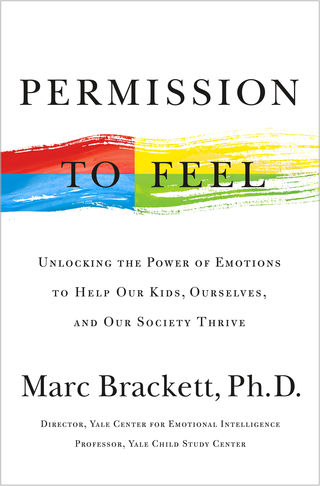Emotional Intelligence
Permission to Feel
A practical evidence-based approach to managing our emotions.
Posted September 25, 2019 Reviewed by Gary Drevitch
Do you want to be more confident and comfortable with your emotions? What if you saw your feelings as essential sources of information for your success and well-being instead of inconvenient hindrances to your progress?
In Permission to Feel, Marc Brackett, a professor at Yale University’s Child Study Center and the founding director of the Yale Center for Emotional Intelligence, presents an evidence-based approach to managing our emotions. He makes a persuasive case that our feelings aren’t impediments but provide important information that can change of our lives for the better – when we give ourselves permission to feel them.
Building on his own early life experiences and his work in the field of emotional Intelligence, Brackett has developed a simple and effective plan to improve the lives of children and adults. He provides a system for understanding our emotions and using them wisely so that they help, rather than hinder, our success and well-being. By integrating psychological research, educational practice, and compelling stories, his book is a guide to understanding your emotions as a key to unlocking your fullest potential.
During his 25 years studying emotion, Brackett has led large research teams and raised millions of dollars to investigate the roots of emotional well-being. His prescription for healthy children (as well as their parents, teachers, and schools) is a system with the acronym of RULER. It's an impactful, efficient approach to understanding and mastering emotions that has already been adopted in thousands of schools. It has been show to reduce stress and burnout, improve school climate, and enhance academic achievement.
The acronym is made up of five emotional intelligence skills. The first three—Recognizing, Understanding, and Labeling—help us to accurately identify and decode what we and others are feeling. The two remaining skills—Expressing and Regulating—tell us how we can manage those emotions to achieve desired goals. Here is a summary each of these skills:
Recognizing emotions in oneself and others. This is not just in the things we think, feel, and say, but our facial expressions, body language, vocal tones, and other nonverbal signals that provide the first clues that something important is happening. We can recognize the occurrence of an emotion by noticing a change in our own thoughts, energy, or body, or in someone else’s facial expression, body language or voice.
Understanding the causes and consequences of emotion. We need to understand those feelings and determine their source. It’s important to remember and identify the cause of emotions and see how they influence our thoughts and decisions. This helps us make better predictions about our own thoughts and more informed choices about our behaviors.
Labeling emotions with precise words. Labeling refers to making connections between an emotional experience and precise, nuanced terms used to describe it. People with a more developed feelings vocabulary can differentiate among related emotions such as pleased, happy, elated, and ecstatic. Labeling emotions accurately increases self-awareness, helps us to communicate emotion more effectively, and reduce misunderstandings in social interactions.
Expressing emotions, taking context and culture into consideration. By expressing our feelings in accordance with cultural norms and social contexts, we can inform and invite empathy from listeners. Skill in expressing emotions means knowing how and when to display our emotions, depending on the setting, the people we’re with, and the larger social context. People who are skilled in this area understand unspoken rules for emotional expression (called “display rules") and express what they feel and modify their behavior accordingly.

Regulating emotions effectively to achieve goals and well-being
It’s important to learn to regulate our emotions rather than let them regulate us. There are practical strategies for dealing with what we and others feel. Regulating involves monitoring, tempering, and modifying emotional reactions in helpful ways, in order to reach personal and professional goals. This doesn’t mean ignoring inconvenient emotions but rather learning to accept and deal with them as they come up. People with this skill are able to use these strategies to manage their own emotions and help others with theirs.
Leaders, educators, parents, students, and researchers will find value in this informative book. Permission to Feel will make you to want to exhale—and say thanks.




